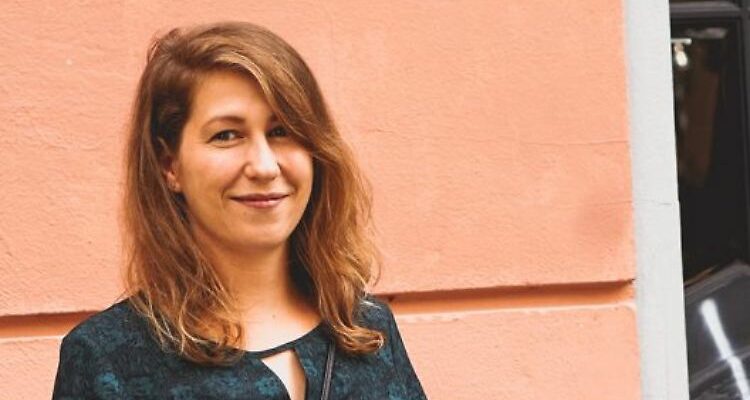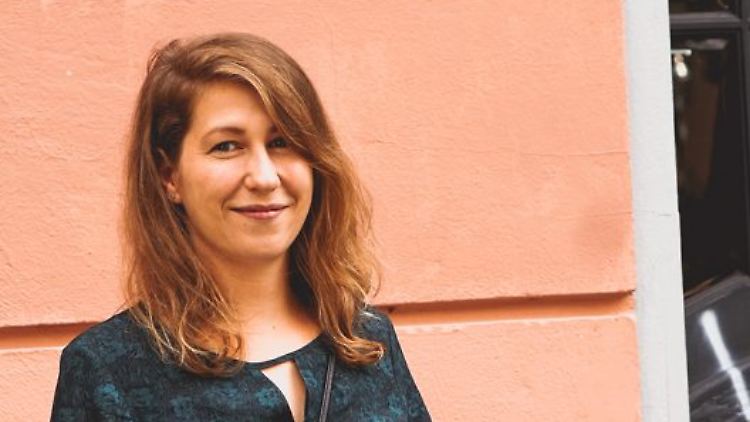When it comes to the climate crisis, Katharina Richter is like Eckart von Hirschhausen: The earth is our living room and we keep it clean. The managing director saved the first original unpackaged store in Berlin Kreuzberg from bankruptcy. In an interview with ntv.de, she explains why it is worth living without waste.
ntv.de: The idea of Original Unverpackt failed at several German locations last year: the business in Berlin Kreuzberg also went bankrupt. Why do you still stick to the concept?
Katharina Richter: I worked for Original Unverpackt before I took over last year. The reason for the bankruptcy was not the concept itself. Rather, the store was crushed by the loan burden and projects that were not pursued. In order to be able to do business well, it simply had to shrink to a healthy level. At our peak we had 30 employees – now we are down to ten.
With the help of crowdfunding you were able to turn things around. To start OU, founder Milena Glimbovski collected more than 100,000 euros in a campaign in 2014. The 2022 rescue operation only brought in 12,000 euros. Is the enthusiasm waning?
The campaign last year was primarily intended to secure pre-financing of the goods for one to two months – the store already existed. So a higher amount was not necessary at all. The whole thing also served as a marketing campaign. We urgently wanted to generate reach after the reporting had broken our necks in some ways.
In what way?
Many media outlets reported on the bankruptcy. The fact that the shop was still open and remains open today was not mentioned afterwards. So with the help of the crowdfunding campaign we were also able to make positive noise.
What do current marketing strategies look like?
We are operating at a lower but very stable level. We are guided by our regular customers and want to establish ourselves better, especially in the neighborhood. Of course, we also use Instagram and other social media channels or send newsletters. Our focus is not primarily on growth, but rather on improving individual processes and building a financial buffer.
Was there or is there any other financial aid in addition to crowdfunding?
According to the Berlin Senate, there is a lot of funding for young companies – but there is no suitable category for our concept. When we applied for nonprofit status, they said we were just a for-profit supermarket. We are so much more: We are a source of inspiration and a meeting place, offering space for education and sustainable development. We promote environmental education in daycare centers and regularly lead tours of our businesses. At this point, politics is clearly lagging behind. There is still a lack of a suitable corporate form for companies oriented towards the common good. So there is hardly any room for support.
Pandemic, war and inflation – Germany is sliding from one crisis to the next. Do you regret the takeover?
I’ll try to look at the whole thing separately. For me, my job means self-realization and at the same time is a strategy to better cope with the world situation as a whole. Because I know that we are doing something meaningful and valuable. That’s why I can’t imagine a better job.
The crises also leave their mark on consumers. How do you deal with customers’ reluctance to buy?
The changes are noticeable throughout the food retail sector. It’s hitting us and the organic retail sector particularly hard because we simply don’t have as much capital as the discounters. Our sales are still sufficient so that we can devote ourselves to additional projects. We recently managed to take over a second store that was about to close due to the owner moving. Through more exchange and closer regional cooperation, people are also more resilient to global crises and can grow closer together overall – even in the neighborhoods, which unfortunately often become more anonymous. We also invest a lot of time in the Unpackaged Association, in professionalizing the industry and founding a purchasing cooperative.
The topic of sustainability is decried by many as a luxury topic. How do you want to reach ordinary consumers with your concept?
Fortunately, we are not alone in our concerns. As Eckart von Hirschhausen likes to say at his events: “You don’t poop in your living room either.” This world is our living room and right now we are consuming more than can be recovered. It is inevitable that we must stop the degradation of our own livelihoods. Sooner or later everyone will understand this because the consequences are already noticeable. People don’t like to be told that they’re doing something “wrong” and then get defensive. We want to point out, without pointing fingers, that there is another way. We offer resource-saving alternatives for consumption.
What do these alternatives look like?
We not only avoid retail packaging, but also secondary and tertiary packaging and everything that comes before it. We accept used glass and ensure that it is reused. Old parcel packaging, i.e. small boxes that are no longer used, can also be returned to us for a deposit – this saves us unnecessary costs for new parcels. Many people always think that recycling alone is the solution. We also have to minimize our overall consumption because the necessary raw materials are dwindling.
How does waste saving work exactly?
Our goods are delivered in reusable containers or in large containers and without outer packaging. Spaghetti comes in a 5 kg bag and saves 58 percent primary and 100 percent secondary packaging compared to the 500 g pack in the (organic) supermarket. Oregano comes in a reusable bucket and does not require any packaging waste. Strained tomatoes are sold in deposit jars, saving countless disposable jars and waste glass. In 2023, our 262 member stores avoided over 500 kilos of plastic (or 230 full yellow bags), almost 3 tons of cardboard and over 12,000 tons of waste glass just by selling Spaghetti Napoli. And that with three products from a range of around 800 products.
Consumers are increasingly able to shop in supermarkets without packaging. Why is it still worth going to an unpackaged store?
On the one hand, competition stimulates business, and on the other hand, we are happy when others also recognize the meaning of our concern. It’s not about taking this knowledge for granted – on the contrary. The trip to an unpackaged store is still worth it, as we almost exclusively offer organic goods. Our selection is usually larger than in conventional supermarkets. We also always rely on large containers. Most products reach us in 20 to 25 kilo containers. Many supermarkets are not designed to stock such products. However, the fact that larger supermarkets are gradually adopting our topics shows that we have our finger on the pulse here – if not ahead of it.
How do you stay motivated despite the “crisis marathon”?
The biggest motivator is my son. I’m fighting to give him a livelihood. I grew up in relatively quiet times – a great privilege. Now I want to leave the planet a little better than I found it. Stores like ours don’t reduce wealth – we ensure wealth for future generations. Because prosperity doesn’t just mean consumption, expensive cars or travel, but also maintaining good livelihoods.
A horror scenario would be another bankruptcy. What would you do then?
As managing director, I keep an eye on the liquidity of my business. This allows me to identify capital bottlenecks at an early stage and take appropriate countermeasures. There is also the option of taking out personal loans or bank loans. If demand remains high enough, crowdfunding is always an option.
What is the profitability of Original Unverpackt?
As a very young industry, profitability is not something we strive for per se. At the moment all profits flow back to the company. Although some stores have already had to close due to the crisis, we still have 300 members organized in the Unpacked Association. We still hope that politicians will intervene more. For example, we demand that oat milk be taxed at 7 percent and that companies that operate sustainably receive more support.
After so many shops had to close due to the crisis, how worried are you that it will affect you again?
I’ve been involved in the sustainability scene in Berlin for a long time – and it’s growing. I also trust in our very loyal regular customers, which are also growing. Associations, suppliers – we all support each other. Berlin is simply the best place for a store of this type. That’s why I stay positive.
Leah Nowak spoke to Katharina Richter

